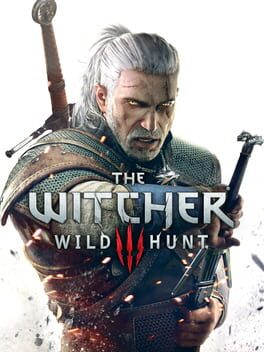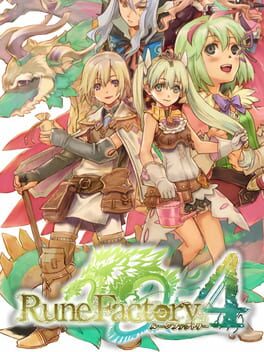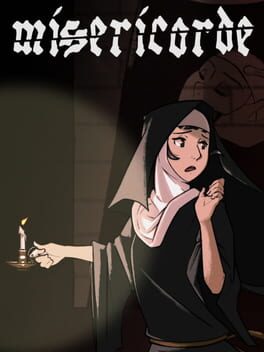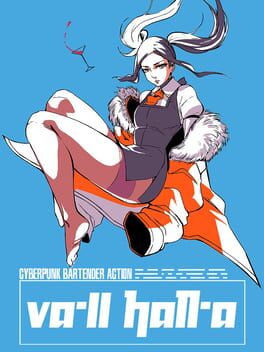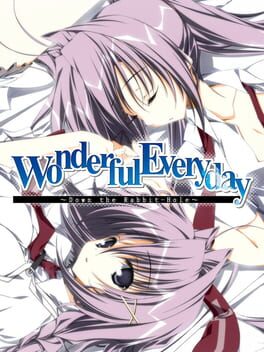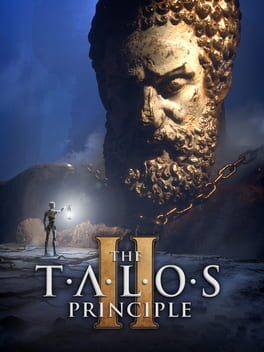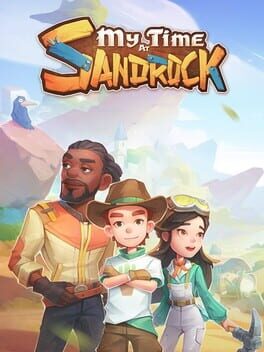joceloon
Bio
data analyst, writer, video game
data analyst, writer, video game
Badges

GOTY '23
Participated in the 2023 Game of the Year Event

Best Friends
Become mutual friends with at least 3 others

Noticed
Gained 3+ followers

Busy Day
Journaled 5+ games in a single day

N00b
Played 100+ games
Favorite Games
195
Total Games Played
000
Played in 2024
083
Games Backloggd
Recently Played See More
Recently Reviewed See More
This review contains spoilers
What a long, strange trip it's been.
Frankly, I wasn't sure what to expect when I started Umineko, and I barely know what to expect now, since I'm going to be inevitably roped into reading Higurashi, which some people say is better. I have a hard time imagining that. But just for argument's sake, let's lead with the bad.
I really don't like visual novels as a medium. That is to say, I like some of the more creative places they've gone (e.g., Pentiment or Christine Love's work), but in terms of the traditional genre staples such as being overlong, dependent on dialogue and lazy about prose, and some general anime-style silliness, I find them pretty grating. IMHO, most of the worst parts of Umineko exist derive from it being a visual novel.
This is a VN that desperately could have benefitted from being cut down to perhaps 3/4 or 2/3 of its size. There are some rare things (common to VNs) that could probably have been cut entirely, but the main issue is letting scenes drag on for way, way too long. I think most of the scenes in Umineko should be there in some way, but a lot of them drag on. Most episodes of Umineko resulted in me saying "wow, it's not over yet?" and not in the good way. And the prose, frankly, isn't good enough to justify the extra time spent - this, too, is common with visual novels.
I also want to say that the whodunit parts of Umineko are one of its weakest points. As an avid mystery novel lover, I think that the whodunit bits are solidly mediocre and, in ways I won't go into detail about here, unfair to the reader. I think if I were going into this with a big hope of solving the mystery it presents in the first episode, I would not have had as good of a time. BUT. I ended up not caring about them at all, and I think Umineko probably hits way better for that kind of reader.
Now for the good: Where Umineko shines is the tender, brutal way that it represents both family relationships and our individual relationships with our past - and the baggage we carry along with us. Not only that, it does something that I'm a sucker for, which is thinking about narrative, storytelling, and perception, linking all of those together sometimes in very explicit ways.
There's something incredibly complicated and beautiful about the way that all of those themes are interwoven, questioned, and picked apart in Umineko, and it presents me with such a frustrating conundrum because I don't like visual novels. But at the same time, it's doing that way, way more effectively than just about any book I can think of. It's maddening how many contradictions exist in my experience with this piece of fiction - times I was so bored I had to take a break, times I was on the edge of my seat. Multiple times I teared up and cried, others that had me shrieking with laughter over something I couldn't explain to anyone who hasn't read it without a flow chart and half an hour to burn. My opinions of characters shifted and changed over time, and yes, my theories about the story did too. Because of all that, I can safely say that I benefited greatly from reading Umineko with friends along to encourage me, by the way.
If I were judging just by.... I don't even know. The storytelling? The themes? The overall whatever-the-fuck-it-is that makes this special? I would give it a 10. But there are undeniably editing issues, and the whodunit is for sure a mediocre time, so if you're reading for that I can't imagine you having a good time. But still, what an incredible experience it's been. I am so grateful I went through it.
Frankly, I wasn't sure what to expect when I started Umineko, and I barely know what to expect now, since I'm going to be inevitably roped into reading Higurashi, which some people say is better. I have a hard time imagining that. But just for argument's sake, let's lead with the bad.
I really don't like visual novels as a medium. That is to say, I like some of the more creative places they've gone (e.g., Pentiment or Christine Love's work), but in terms of the traditional genre staples such as being overlong, dependent on dialogue and lazy about prose, and some general anime-style silliness, I find them pretty grating. IMHO, most of the worst parts of Umineko exist derive from it being a visual novel.
This is a VN that desperately could have benefitted from being cut down to perhaps 3/4 or 2/3 of its size. There are some rare things (common to VNs) that could probably have been cut entirely, but the main issue is letting scenes drag on for way, way too long. I think most of the scenes in Umineko should be there in some way, but a lot of them drag on. Most episodes of Umineko resulted in me saying "wow, it's not over yet?" and not in the good way. And the prose, frankly, isn't good enough to justify the extra time spent - this, too, is common with visual novels.
I also want to say that the whodunit parts of Umineko are one of its weakest points. As an avid mystery novel lover, I think that the whodunit bits are solidly mediocre and, in ways I won't go into detail about here, unfair to the reader. I think if I were going into this with a big hope of solving the mystery it presents in the first episode, I would not have had as good of a time. BUT. I ended up not caring about them at all, and I think Umineko probably hits way better for that kind of reader.
Now for the good: Where Umineko shines is the tender, brutal way that it represents both family relationships and our individual relationships with our past - and the baggage we carry along with us. Not only that, it does something that I'm a sucker for, which is thinking about narrative, storytelling, and perception, linking all of those together sometimes in very explicit ways.
There's something incredibly complicated and beautiful about the way that all of those themes are interwoven, questioned, and picked apart in Umineko, and it presents me with such a frustrating conundrum because I don't like visual novels. But at the same time, it's doing that way, way more effectively than just about any book I can think of. It's maddening how many contradictions exist in my experience with this piece of fiction - times I was so bored I had to take a break, times I was on the edge of my seat. Multiple times I teared up and cried, others that had me shrieking with laughter over something I couldn't explain to anyone who hasn't read it without a flow chart and half an hour to burn. My opinions of characters shifted and changed over time, and yes, my theories about the story did too. Because of all that, I can safely say that I benefited greatly from reading Umineko with friends along to encourage me, by the way.
If I were judging just by.... I don't even know. The storytelling? The themes? The overall whatever-the-fuck-it-is that makes this special? I would give it a 10. But there are undeniably editing issues, and the whodunit is for sure a mediocre time, so if you're reading for that I can't imagine you having a good time. But still, what an incredible experience it's been. I am so grateful I went through it.
This review contains spoilers
While the initial premise of Misericorde is definitely flimsy, it's pretty much the last part of the plot that is, because once the story is unleashed it becomes an intense character study of the MC and everyone else around her. Pretty much all of the characters are well-developed and interesting, each with their own stories of how they came to be in the abbey, flaws, and friendships/alliances.
This is an extremely layered story, which is fantastic and frankly way more complex than I expected out of a VN. You as the reader and the MC are both learning about a new world from adjacent angles - we as readers are coming to learn about the world as full-on outsiders, MC has only theoretical knowledge from books (which some readers probably share). She's also much more religious than almost everyone else in the convent, and she's forced to come to terms with that. The layered tension between the player and the MC and the MC and the other characters is a really interesting experience, I think.
Like Pentiment, this is a love letter to medievalism, and there are historical aspects that have clearly been well-researched. My biggest complaint, however, is that UNlike Pentiment, the dialogue is fairly modernized. I assume they did it to make it more approachable, but it feels anachronistic. There are a few moments of comedic relief (the infamous "duck" one referenced in Steam reviews being one of them) and one character who at first seems pretty memey (but has more depth later) that also do more to detract from the game than add. I think they should have just leaned into it being serious and let small moments of humor diegetically emerge anyway, like Pentiment did. Then again, holding any writer to Josh Sawyer as a standard just seems unfair.
Also, it's hard to adequately describe this, but the way the narrative focuses and unfocuses can at times be distracting. The game takes place in the span of just a few days, so there's a lot of focused attention to small moments. But sometimes the moments that it chooses to zoom in on feel like odd choices. This does get used to its strength in places, though - one that comes to mind is that chess is used as a metaphor for the events at the abbey throughout, and there's a point at which we see the details of several chess matches in a row that are really great metaphorical representations of the different characters' personalities. There's just a bit of a pacing issue where the VN drags in the center.
That said, the end had something that surprised and delighted me, and left me incredibly excited for part two. I can't wait.
This is an extremely layered story, which is fantastic and frankly way more complex than I expected out of a VN. You as the reader and the MC are both learning about a new world from adjacent angles - we as readers are coming to learn about the world as full-on outsiders, MC has only theoretical knowledge from books (which some readers probably share). She's also much more religious than almost everyone else in the convent, and she's forced to come to terms with that. The layered tension between the player and the MC and the MC and the other characters is a really interesting experience, I think.
Like Pentiment, this is a love letter to medievalism, and there are historical aspects that have clearly been well-researched. My biggest complaint, however, is that UNlike Pentiment, the dialogue is fairly modernized. I assume they did it to make it more approachable, but it feels anachronistic. There are a few moments of comedic relief (the infamous "duck" one referenced in Steam reviews being one of them) and one character who at first seems pretty memey (but has more depth later) that also do more to detract from the game than add. I think they should have just leaned into it being serious and let small moments of humor diegetically emerge anyway, like Pentiment did. Then again, holding any writer to Josh Sawyer as a standard just seems unfair.
Also, it's hard to adequately describe this, but the way the narrative focuses and unfocuses can at times be distracting. The game takes place in the span of just a few days, so there's a lot of focused attention to small moments. But sometimes the moments that it chooses to zoom in on feel like odd choices. This does get used to its strength in places, though - one that comes to mind is that chess is used as a metaphor for the events at the abbey throughout, and there's a point at which we see the details of several chess matches in a row that are really great metaphorical representations of the different characters' personalities. There's just a bit of a pacing issue where the VN drags in the center.
That said, the end had something that surprised and delighted me, and left me incredibly excited for part two. I can't wait.



